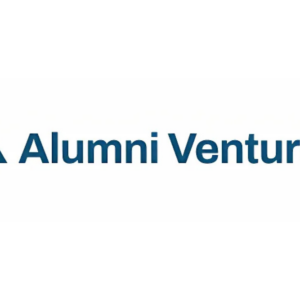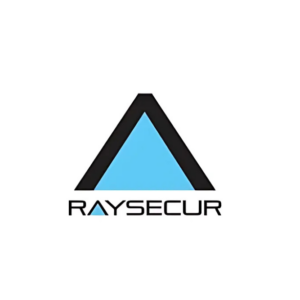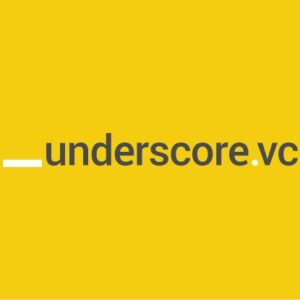Interview with David Rubinstein, President of Opti
Tell Us About Your Journey
It’s been a great journey. My career, I was probably one of the early founders of a high tech company or a startup back in 1985. And it’s been riding the technology transformation waves ever since.
Early parts of my career was all around consulting, systems integration. Started bringing minicomputers and client server type architectures to businesses around Massachusetts. And then after selling that company, moving on into other high tech ventures, mainly around services. And then about 20 years into my career, I really wanted to get into software. So I moved out of pure consulting and started taking leadership roles in software companies, which has led me to being CEO of just a terrific company, Opti.
What Is the History of Opti?
Opti spun out of a civil engineering firm. The concept behind Opti was developed inside Geosyntech Consultants. Around 2010 they started to develop this cloud software that can control an outflow mechanism on a wetland. So basically, you have a valve that allows water to flow out maybe down a stream. And what they figured out was how to put what’s called an actuated valve, so it’s controlled by a motor, and it communicates through cloud software. And the cloud software is looking at the weather forecast, you know, how much water is in that wetland area. And so the concept is to draw the water down before the storm comes, making more room for the next storm.
That product was put together, was patent protected before they even spun the company out in 2014. I think it was wise that they spun it out, because to have a service company with capital intensive software, it’s a tough business model. And I’m glad they spun it out because this is where I am today.
What Motivates You?
What really motivates me as a businessperson and as an entrepreneur is the opportunity to help others. I feel like I’m paying it forward in the way in which I coach my teammates and I help them grow and develop them professionally, which my hope is that they’re able to earn more money and do better things for their families and for their life. And I want to treat people the way I always wish I was treated. So some folks will say, well, you need to be an edgier, tougher CEO. No, I’m an empathetic CEO. I need to understand what motivates people, what drives them, and get that aligned to the needs of the company.
What Challenges Have You Faced?
Selling to the public sector, I have to calm myself down. Gotta be more thoughtful about it. You know, I’m accustomed to leading businesses in the tech world that grow 40, 60, 100% a year. And in the public sector, if you’re growing 10 to 12% a year, you’re a highflyer. Right? But we got to get this solution out there. It’s saving a lot of money. It’s great resiliency, and as some of our customers say, it gives them peace of mind.
So that’s one of my challenges. I’d say the other challenge is just working with public entities and helping them understand how you procure technology as part of your construction projects. And there are some nuances that we have to pay attention to to ensure that there’s no risk at the end of the project. And so those are probably the two major challenges I’m dealing with.
What Advice Can You Offer to Other Entrepreneurs?
So I’d say the best advice I can provide other entrepreneurs is, first off, find peers that you can network with, and you can learn from, okay? I like to say follow one of Covey’s habits, which is seek to understand, then seek to be understood. Oftentimes entrepreneurs are extremely passionate about what they’re doing, and thank God, because that’s what creates these innovations. But don’t have blinders about it. There’s a lot of other outside factors in the world.
And third, always develop yourself. I like to use emotional intelligence as a baseline and then how do I improve upon my self-awareness and my social awareness from there? Because at the end of the day, it’s about team, it’s about motivating people and you want to be in that thick, but your passion is not going to get you across the finish line.
Where Do You See Opti in 3-5 Years?
Today, most of our businesses in the US, 90% of it’s public sector, 10% private sector optimistically. So within the US, we’re going to be making a much larger drive into the private sector. There are a lot of great corporations who are focused on water sustainability goals, who are very interested in our technology. With our parent company, Ali Access, we’re going to begin our global expansion. So we’re already mapping out the key markets in Europe, Asia, and Latin America where we’re going to be going. And this was the vision, this was the dream that we as a leadership team were looking at as we had folks interested in acquiring us. This solution needs to go global, and it will.
What Value Has Gesmer Updegrove Provided to Opti?
So much. I’ll just say Gesmer, my trusted advisors. So working with Russ, he’s really gotten to understand our contracting and the nuances, and so he helps to keep us safe. Employment counsel has been terrific, particularly during social upheaval during the pandemic. And that was really critical because as I came into Opti and we needed to flip the business model from being a consulting group with software to being a SaaS platform. I brought in a team of consultants to help us on the strategy, but also help coach a great junior guy into a terrific chief revenue officer, a terrific co-founder who understands the architecture but learned more about agile development methodologies. So I don’t look to Gesmer for just my legal needs. I look to Gesmer for networking around Boston to help supplement other needs that we have in the business.
Why Go With Gesmer?
Well, I’ve worked with a lot of law firms in this city, from the big national groups to sole practitioners. I came specifically to Gesmer after getting to know Gesmer after four or five years, once I was inside Opti. I need somebody who understands startups. And even the national firm said to me, why are you using us? We’re really expensive for an early stage company. Gesmer understands the early stage world. And what I like is you have an understanding of “how far can you take the client in that growth?” So you’re really sticking to a focus. As I like to tell my folks, narrow your focus, and execute flawlessly. And I feel that with Gesmer for the early stage, venture backed companies, this is where you should be, because you get us.






